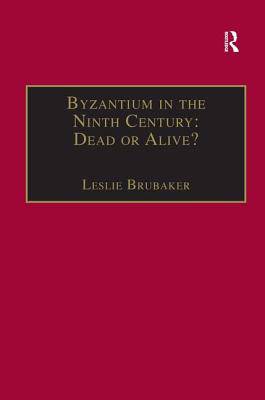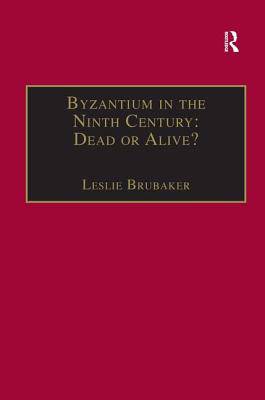
- Afhalen na 1 uur in een winkel met voorraad
- Gratis thuislevering in België vanaf € 30
- Ruim aanbod met 7 miljoen producten
- Afhalen na 1 uur in een winkel met voorraad
- Gratis thuislevering in België vanaf € 30
- Ruim aanbod met 7 miljoen producten
Zoeken
Byzantium in the Ninth Century: Dead or Alive?
Papers from the Thirtieth Spring Symposium of Byzantine Studies, Birmingham, March 1996
€ 305,45
+ 610 punten
Omschrijving
9th-century Byzantium has always been viewed as a mid-point between Iconoclasm and the so-called Macedonian revival; in scholarly terms it is often treated as a 'dead' century. The object of these papers is to question such an assumption. They present a picture of political and military developments, legal and literary innovations, artisanal production, and religious and liturgical changes from the Anatolian plateau to the Greek-speaking areas of Italy that are only now gradually emerging as distinct. Investigation of how the 9th-century Byzantine world was perceived by outsiders also reveals much about Byzantine success and failure in promoting particular views of itself. The chapters here, by an international group of scholars, embody current research in this field; they recover many lost aspects of 9th-century Byzantium and shed new light on the Mediterranean world in a transitional century. The papers in this volume derive from the 30th Spring Symposium of Byzantine Studies, held for the Society for the Promotion of Byzantine Studies at the University of Birmingham in March 1996.
Specificaties
Betrokkenen
- Uitgeverij:
Inhoud
- Aantal bladzijden:
- 288
- Taal:
- Engels
- Reeks:
Eigenschappen
- Productcode (EAN):
- 9780860786863
- Verschijningsdatum:
- 1/05/1998
- Uitvoering:
- Hardcover
- Formaat:
- Genaaid
- Afmetingen:
- 156 mm x 234 mm
- Gewicht:
- 580 g

Alleen bij Standaard Boekhandel
+ 610 punten op je klantenkaart van Standaard Boekhandel
Beoordelingen
We publiceren alleen reviews die voldoen aan de voorwaarden voor reviews. Bekijk onze voorwaarden voor reviews.










